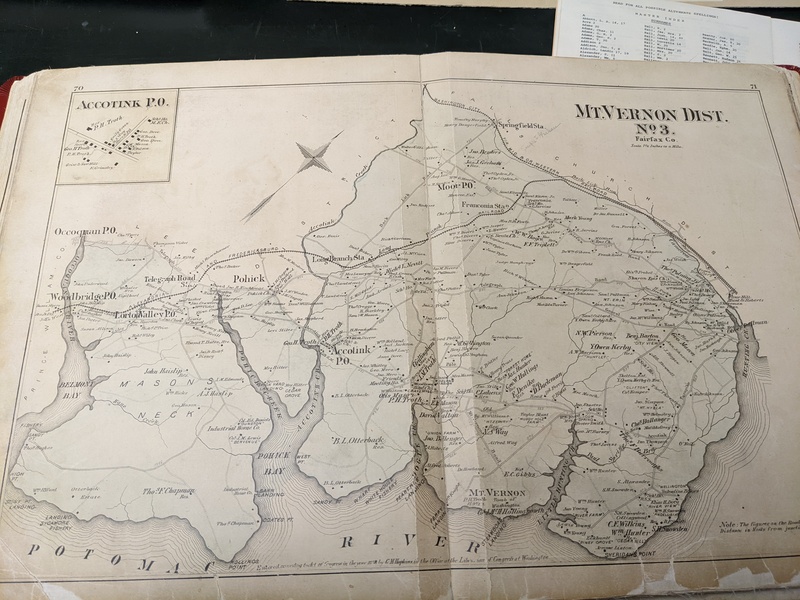Lawson Brooks
Lawson Brooks was an African American landholder who lived in the Mount Vernon District in the late nineteenth and early twentieth century. This exhibit will portray and depict a brief biographical entry of Lawson Brooks using the minimal pieces of evidence such as Maps, Tax/ Deed Entries, etc to be included in Black Lives Next Door In Fairfax. Firstly, we were given the scanned version of the 1894 Mount Vernon District “Table of Tracts of Land for the Year 1894.[1]” Then, with our assigned Black American Landowner, we tried to find any related census of our houseowner using Ancestry.com
Tracing the Black ownership land was extremely difficult, especially for the assigned Lawson Brooks due to the incorrectly transcribed Judson Brooks. This is provided with no results on Ancestry.com, obviously so because of the incorrect given name when searching for the census. However, there are some useful strategies offered by archivists at the Fairfax County Circuit Court’s Historic Records Center that have been utilized. First, we utilized the racial dividedness of the era to identify Black landowners. Using the land tax records that separated land ownership by race, we were able to locate African American landowners much more efficiently. The map above represents the district of Mount Vernon, as well as the residence of Mr. Brooks within the late 19th century. The topography is seen to coincide with the present day maps as well.
Throughout this biographic entry of Lawson Brooks, there can be made of many conclusions regarding the involvement of Brooks’ other land/property purchases, family of Lawson, and documents regarding the history of Lawson’s properties of both being the grantor of signing papers for the land and being the grantee for the deed of the land [3] . These records served as the starting point of Brooks’ legacy of his land: 108 Ft.Hayfield. Moreover, within this biographic entry, there will be an interaction using Lawson Brooks as an example with the racial discrepancy on acquiring land as a Black individual and the family history of a Black houseowner [2].
[1] Land Tax Record book (1894), Historic Records Center Fairfax County Circuit Court
[2] Mt. Vernon District No. 3 Fairfax Co. (1870) Historic Records Center Fairfax County Circuit Court
[3]Library of Virginia, “Research Notes Number 1” revised September 2001. https://www.lva.virginia.gov/public/guides/rn1_landtax.pdf
By: Mohit Darla
